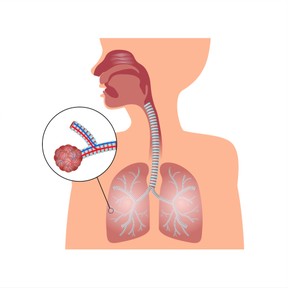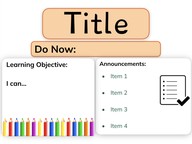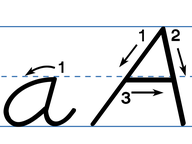
The respiratory system
I can describe the main parts of the respiratory system.



8,000 schools use Gynzy
92,000 teachers use Gynzy
1,600,000 students use Gynzy
General
This lesson will take students through the respiratory system from the moment air enters through the nose and mouth, to its travels through the trachea into the bronchial tubes, and into the lungs. Students will learn how oxygen allows the body to function properly.
Standards
NGSS:
MS-LS1-3
Learning Objective
Students will be able to describe how oxygen is carried through the body and explain why oxygen is vital for the body.
Introduction
Students will first place their hands on their chest and feel their lungs working as they inhale and exhale. With a partner, they will discuss how much air they think their lungs can hold as well as how long they can survive without air.
Instruction
Students will learn that the air they breathe is made primarily of nitrogen, followed by oxygen and other gases. They will learn how oxygen travels through the body and the functions of all the different parts of the respiratory system, including the trachea, bronchial tubes, bronchioles, and alveoli. Next, students will learn about the diaphragm and how it contracts and relaxes, as well as different ways to take care of their lungs and keep them healthy. Finally, students will drag to label the different parts of the respiratory system.
Quiz
Check for student understanding with true/false questions, multiple-choice questions, and fill-ins where students identify the different parts and functions of the respiratory system.
Closing
Students spin a wheel to land on a description. They must name the correct term to fit the description they land on.
Teaching tips
Have students use their hands to visualize and demonstrate how the diaphragm moves as they breathe in and out.
The online teaching platform for interactive whiteboards and displays in schools
Save time building lessons
Manage the classroom more efficiently
Increase student engagement
Discover more!
About Gynzy
Gynzy is an online teaching platform for interactive whiteboards and displays in schools.
With a focus on elementary education, Gynzy’s Whiteboard, digital tools, and activities make it easy for teachers to save time building lessons, increase student engagement, and make classroom management more efficient.



